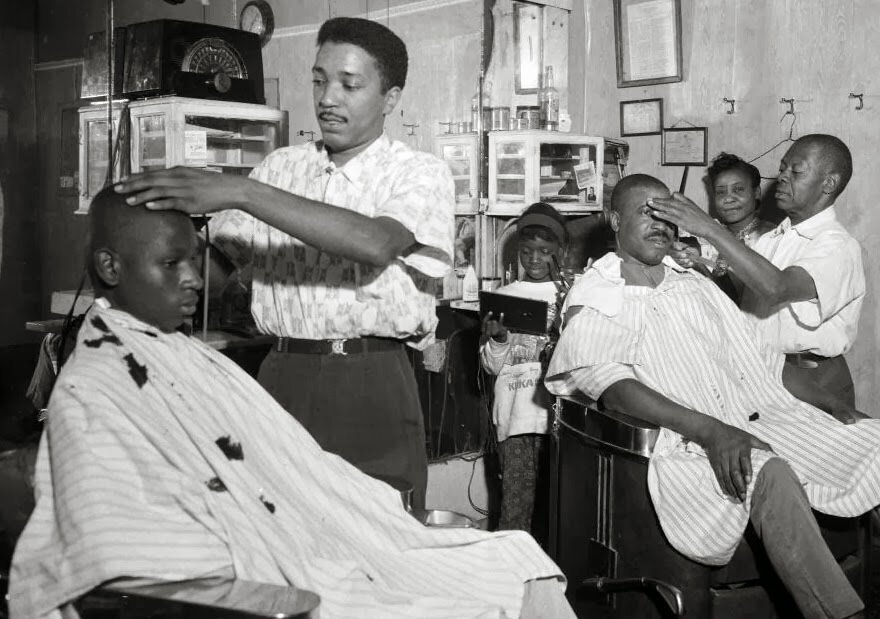Natural hair care in the 417
Lack of natural hair care resources in Springfield pose problems for students of color at MSU
https://blackartblog.blackartdepot.com/wp-content/gallery/beautysalon/doin-time-kevin-wak-williams.jpg
American icon Joan Crawford said it best when she said, "I think that the most important thing a woman can have- next to talent, of course- is her hairdresser." For many, hair is an extension of their identity, a part of what makes them who they are. However, none of that is possible without a good hairdresser or barber for trims, shaves, colors and all other hair needs. Even though there is a large job market in cosmetology expecting an 8% increase over the next 10 years and over 86,000 hair salons in America, finding the right stylist can be hard, and it can be even more difficult if you're someone with ethnic hair.
(https://blackartblog.blackartdepot.com/wp-content/gallery/beautysalon/all-that-glitters-annie-lee.jpg)
Treasured Locks, an organization that provides hair care recommendations for people with natural hair, also helps individuals find salons near them that can properly provide service for natural hair. Treasured Locks lists none in the Springfield area. The closest are over 2 hours away in Kansas City or St. Louis despite there are many salons in town. A big part of this overall issue is that hairdressers are simply not trained to cater to every hair type. An article by Bustle reported that on the test to receive a cosmetologist license, only one of the possible 150 questions mentions anything about natural hair. There are no clear guidelines that state cosmetology school has to teach students about natural hair.
Some individuals are stepping up to the plate and creating natural hair classes and courses to get certificates in natural hair care. Some of the biggest organizations at the moment are Zamora Natural Hair and Good Hair Coach. While this is a step in the right direction and begins to set a higher standard it does not imminently help college students affected by this problem.
(https://www.collectorsweekly.com/articles/the-empowering-evolution-of-black-barbershops/)
Some students have taken matters into their own hands and have set up shop in their own homes and even dorm rooms. Riya Powell, a freshman at MSU, learned how to do twists and braids when she was younger. This skill has allowed her to help out other college students struggling to find somewhere to get their hair done at an affordable price in Springfield. One student who had Powell do his hair when he first came to Missouri State said he could only find one salon in town with a somewhat reputable reputation but the prices were outrageous for a college student to go regularly.
Right now there is a gap in the market for natural hair stylists, but let’s say someone is fortunate enough to find someone to do their hair. The troubles in no way end there as hair discrimination is real and alive in our society. Black students across the country have been told to flat iron their hair and remove braids or extensions to meet the dress code policy set by the schools. The problem is alive in the workforce with more individuals sharing their stories every day of facing discrimination from bosses and even as extreme measures of being fired for their hair. Only two states, New York and California, have signed laws banning hair discrimination in public schools and work environments. Many organizations are calling on teachers to reform their school policy instead of waiting for laws to take into effect to protect black students.
As the old saying goes, “We’ve come so far, but still have so much further to go”. While racial discrimination was made illegal in the 1900s there are still so many systematic barriers we have yet to conquer. People should be allowed to feel comfortable in whatever hair they have and should have the resources to receive professional care, regardless of the type or texture they have.



